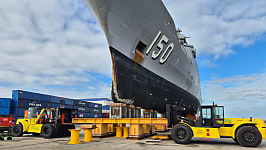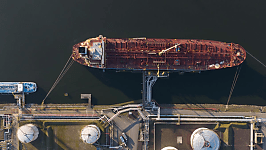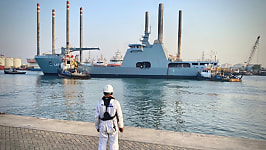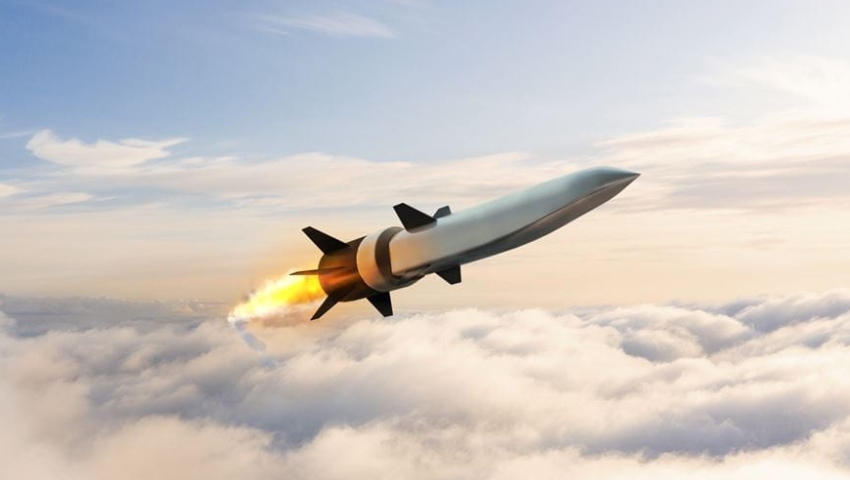Other advanced defence capabilities to be explored under the AUKUS agreement may prove to be more important than Australia’s prospective fleet of nuclear-powered submarines, according to the Deputy PM.
Deputy Prime Minister and Minister for Defence Richard Marles is in the United States for meetings with US Defense Secretary Lloyd Austin, senior government officials, members of the US Congress, and the defence and national security community.
The trip, scheduled to conclude this Thursday (14 July), is expected to focus on “deepening cooperation” between Australia and the United States under the ANZUS partnership, in an effort to foster a “resilient and inclusive” Indo-Pacific.
“For over 70 years, ANZUS has been a powerful demonstration that neither the US or Australia stand alone. In the evolving strategic environment, the strength of this enduring partnership is more important than ever,” Deputy Prime Minister Marles said.
“I am ambitious about what Australia and the United States can achieve together and look forward to bringing new energy to the table. It is critical that we work together with our allies and partners to protect the rules-based international order.”
Advancing the AUKUS agreement is expected to form a key part of these discussions, particularly the current exploration of a nuclear-powered submarine capability for the Royal Australian Navy’s next-generation fleet.
However, ahead of his departure to the United States, Deputy Prime Minister Marles told the Herald Sun that other key technologies promised under AUKUS may play a more decisive role in shoring up Australia’s national security over the longer-term.
“These other technologies that we are looking at developing may well end up being … just as if not more important in terms of the way in which the three countries relate to each other, and therefore what AUKUS ultimately delivers,” Minister Marles said.
In April, an AUKUS leaders’ statement confirmed the trilateral security partnership would include cooperation on hypersonics and counter-hypersonics weapons systems.
This was in addition to other previously announced capabilities, which include:
- undersea capabilities such as the AUKUS Undersea Robotics Autonomous Systems Project;
- quantum technologies including the AUKUS Quantum Arrangement (AQuA);
- artificial intelligence and autonomy aimed at enhancing AI decision-making processes and to defend against other AI threats;
- advanced cyber capabilities, including enhanced protection of communications and operating systems;
- electronic warfare, where the three partners will share “tools, techniques and technology”;
- innovation, including learning from each country’s defence innovation enterprises; and
- information sharing.
China tables list of demands
Deputy Prime Minister Marles’ trip to the United States comes amid renewed focus on Canberra’s diplomatic relationship with Beijing.
Chinese Foreign Minister Wang Yi recently blamed the former Morrison government for a breakdown in relations.
“The root cause of the difficulties in bilateral relations over the past few years was the former Australian government’s insisting on regarding China as a rival or even a threat, allowing its words and deeds being irresponsible against China,” he told Chinese state media outlet Xinhua.
The accusation was accompanied by a list of four demands from Beijing, which according to Wang include:
- treating China “as a partner, not an adversary”;
- seeking common ground while “reserving differences”;
- “not targeting or seeking to control third parties”; and
- building a “positive and pragmatic foundation of public opinion”.
But Prime Minister Anthony Albanese stressed Australia would not seek to repair diplomatic relations through subservience.
“Australia doesn't respond to demands. We respond to our own national interest,” he said.
“I'll say this. We will cooperate with China where we can.
“I want to build good relations with all countries. But we will stand up for Australia’s interests when we must.”
[Related: Marles spruiks AIC for timely nuclear subs delivery]
Charbel Kadib
News Editor – Defence and Security, Momentum Media
Prior to joining the defence and aerospace team in 2020, Charbel was news editor of The Adviser and Mortgage Business, where he covered developments in the banking and financial services sector for three years. Charbel has a keen interest in geopolitics and international relations, graduating from the University of Notre Dame with a double major in politics and journalism. Charbel has also completed internships with The Australian Department of Communications and the Arts and public relations agency Fifty Acres.









